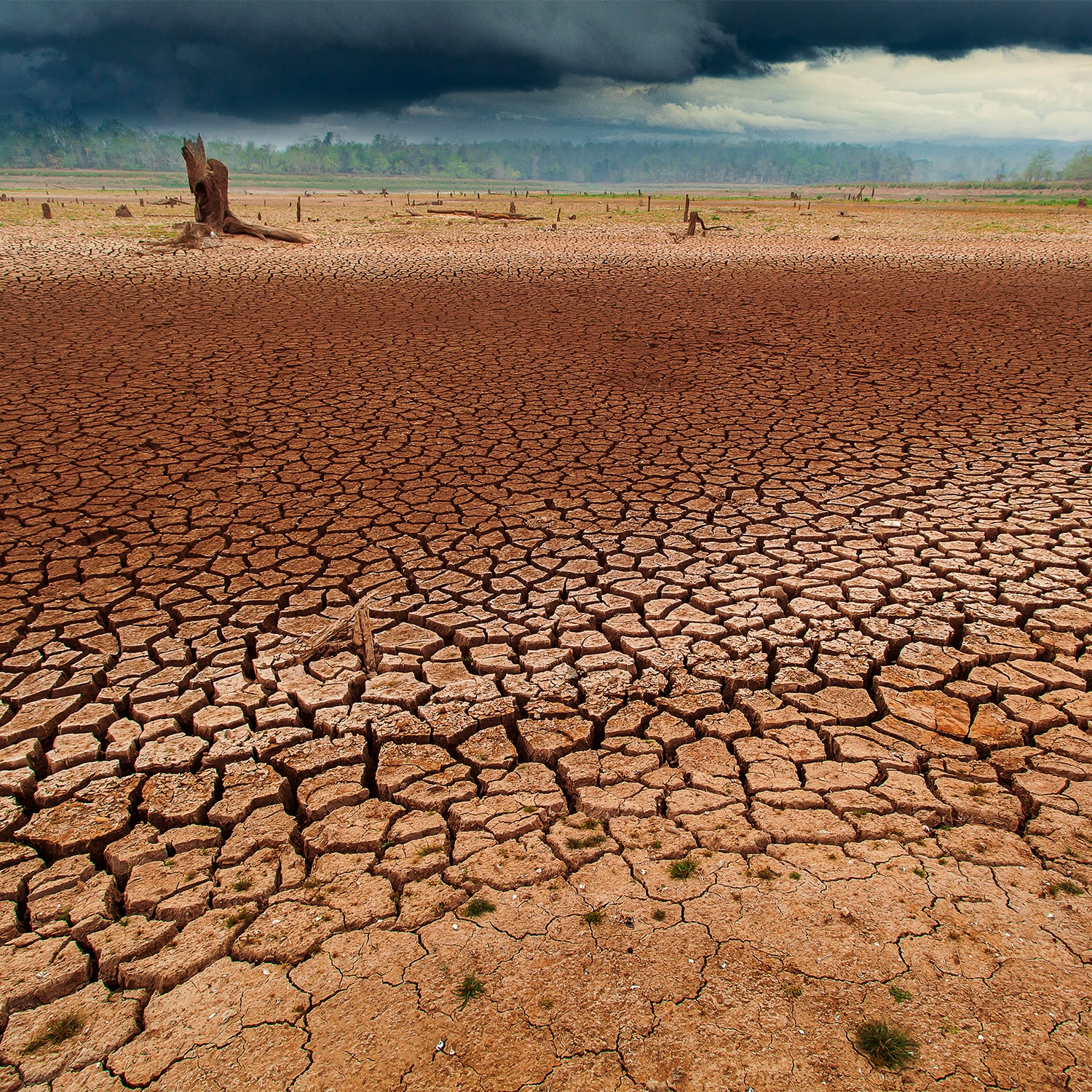- ISSUE#04-2
-
STUDY – Fisherman’s Contradiction
May, 2024
May, 2024
Ghost gear, the most marine debris in terms of weight, reveals human's contradiction.
Ghost gear. Ghosts of fishing gear that have lost their owners wander the sea.
These ghosts highlight the contradiction of human existence.
In ISSUE #04-1 “Coast of Tsushima”, we learned the reality of the accumulation of marine debris focusing on the situation in Tsushima Islands of Japan. Most marine debris consist of plastic, and the “ghost gear” is one of the serious harms that often overlooked behind the plastic wastes from the everyday life.
Ghost gear refers to fishing nets, ropes, buoys, and other fishing gear that are lost, abandoned, or discarded. An estimated 500,000 to 1,150,000 tons of ghost gears are washed into the oceans each year. One study suggested that ghost gear makes up 46 % of the total of 45,000 to 129,000 tons of plastic floating in the “Pacific Garbage Belt”.
These ghost gears are piled up on Tsushima’s beaches like artificial rocks. Ghost gear impacts marine mammals, seabirds, sea turtles, and more, and is the type of debris that has proven to be the most lethal. Many animals get entangled in ghost gear can die a slow and painful death through suffocation or exhaustion. Ghost gear also damages valuable marine habitats, such as coral reefs and suffocates anemones and shellfish. The marine animals often consuming these plastics thinking it is food leading them to slow, painful death.
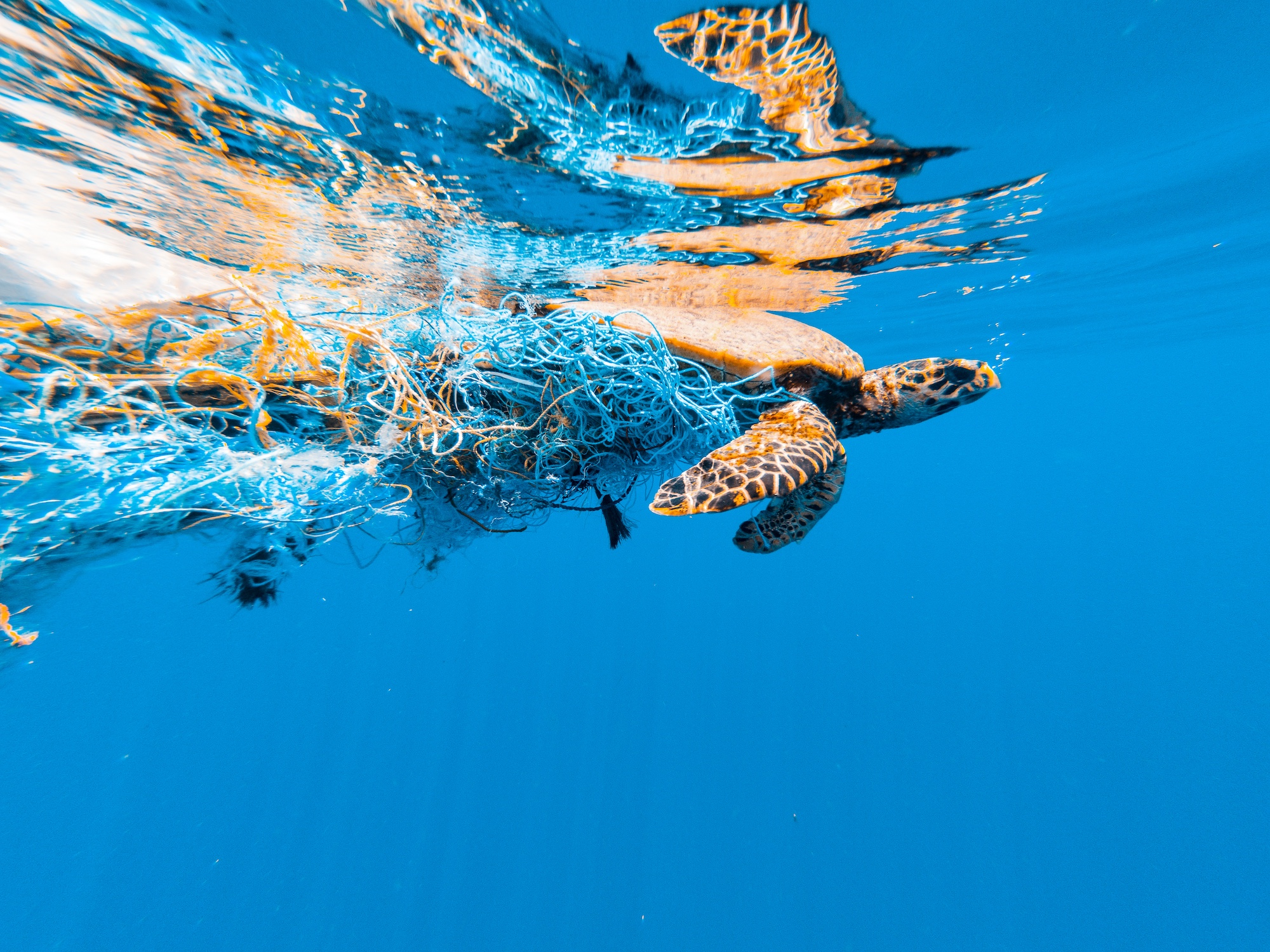
Humans’ foolishness is explicit as destroying the marine ecosystem will destroy the benefits of the ocean that brings to us. One study estimates that more than 90% of the marine life caught in ghost gear has economic value. Those valuable resources are lost in vain. In Tsushima, seaweed, once abundant in the past, can no longer be harvested at all (this is thought to be due not only to ocean pollution, but also to the rising sea temperatures caused by the climate crisis).
There are many economic damages for the aquaculture industry to say the least. The economic cost of losing gear, safety concerns to navigation, the loss of tourism and many more. In Tsushima, the tourist activities such as sea kayaking and stand-up-paddling are operated inside the protected clean water zone, just a step aside from the piles of floating garbage.
Even the most well-managed fishery cannot avoid creating ghost gear due to the weather or other technical errors, however, intentional discarding is also believed to contribute significantly to ghost gear in the sea. According to the survey conducted in Northern Hemisphere, the estimates of 5.7% of fishing nets, 8.6% of fishing traps such as baskets and pots, and 29% of fishing lines used worldwide are abandoned, lost, or discarded in the sea. The illegal, unregulated and unreported (IUU) fishing, also contribute this greatly, particularly in the areas beyond national jurisdiction. Vessels conducting IUU fishing often operate in adverse conditions, such as at night or without access to safe harbors during inclement weather, and frequently dispose of their gear to avoid detection, destroy evidence, and gain port access.
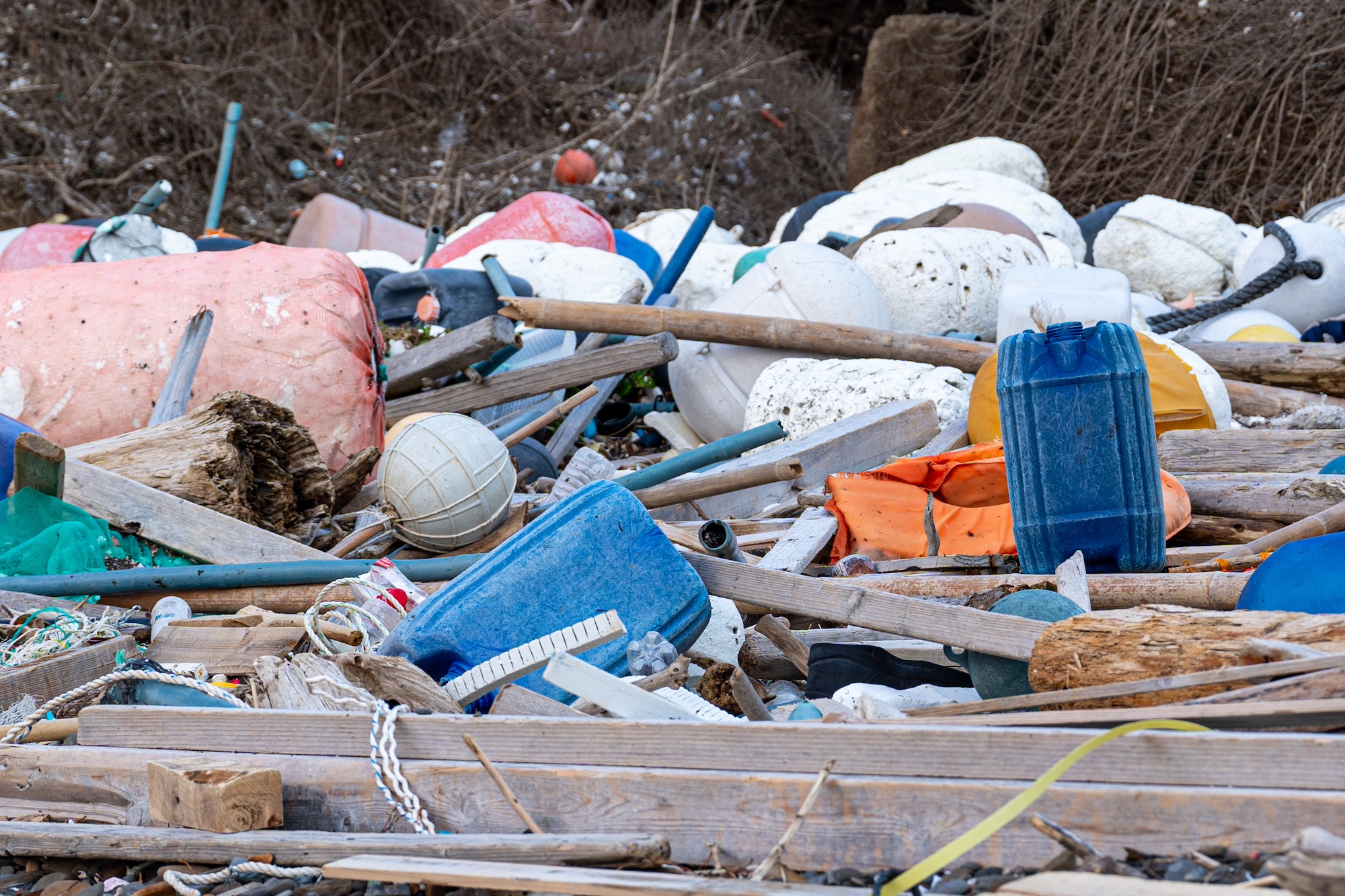
The fishing gear is the most common debris in Tsushima.
The irony of killing their own field while depending on the bounty of the seas for their livelihood. How can any fishermen not imagine they are cutting their own throats? This contradiction is questionable for those of us who are not fishermen.
However, if we look at the situation from a different perspective, the question is all relatable to us. Whether it is damaging the soil from toxic pesticides, never-ending deforestation for agriculture, or for economic development, all our human behaviors are contradicted to the nature’s desire.
With this contradiction in mind, let’s look at Tsushima again. There are countless black plastic tubes from sea eel fishing, which are believed to be dumped from the IUU fishing in Korea. In order to avoid detection and to kill the evidence, those illegally dumped gears are drifted ashore on Tsushima.
Also, countless large blue plastic tanks with Korean letters have washed up on Tsushima. These tanks contain dangerous chemicals to be used to disinfect nets for illegal and inexpensive seaweed farming. It is said that this is also being discharged into the sea to destroy evidence. The Ministry of the Environment has been conducting surveys since 2006, and in 2014, 14,465 were found along the Japan Sea coast in one year. In February and March 2017, more than 6,000 were found in just one month (*1).
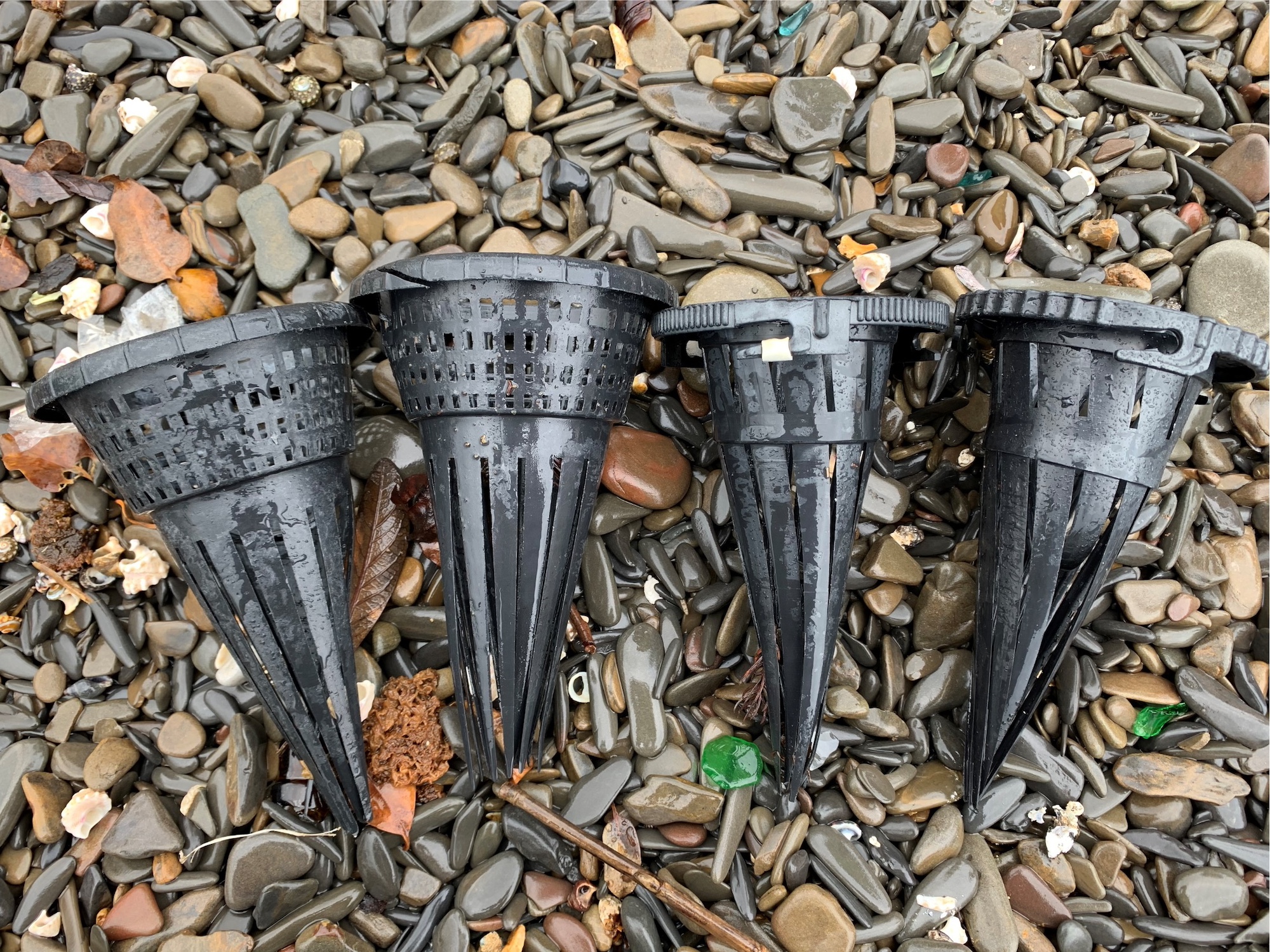
Sea eel fishing gear found on Tsushima’s beaches. South Korea exports 3,664,000 tons of sea eel to Japan (2018).
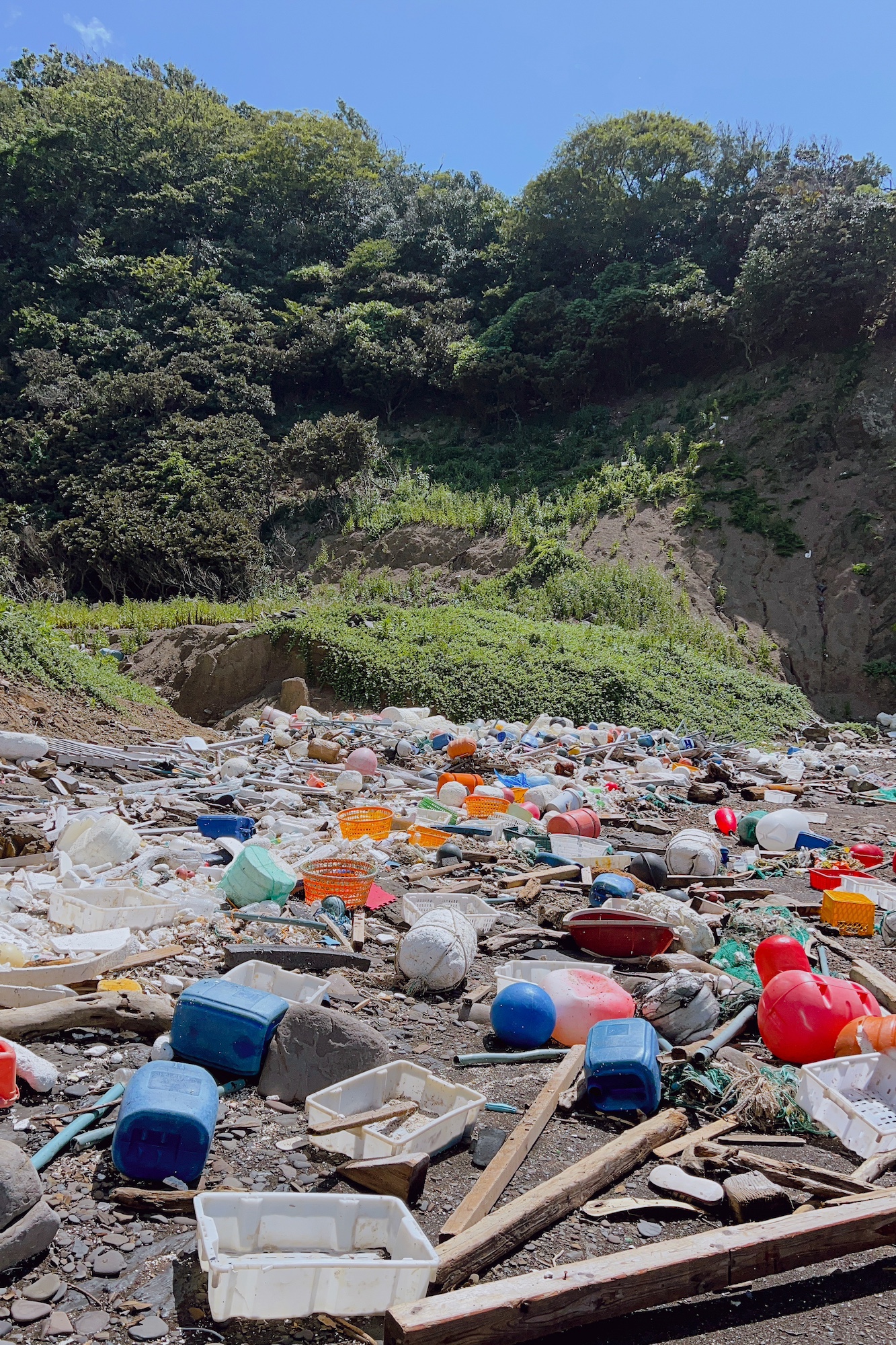
Blue plastic tanks believed to have contained hydrochloric acid can be found everywhere. (Kujika beach, Tsushima City, inspected by WORDS Gallery and Keeenue, 8/3/2023)
IUU fishing is created from the fact that we unknowingly purchase fish that are not harvested by legitimate fisheries just because of its low costs. If we were willing to pay a bit more to the local products over the cheap seafood with unknown origins, we may not have this situation. Each purchase made by each of us is connected to the problems that exist today. After all, it is us ourselves who have the contradiction.
Human, for the sake of immediate profit, continues to harm its own planet and other living creatures, and even the future of human is in jeopardy. Fishermen’s contradiction is ours. It is never in the someone else’s hands.
<Reference>
*1 – Sankei Newspaper, 4/12/2017
WWF JAPAN Let’s eliminate “ghost gear,” the cause of the serious marine plastic problem! 2020/10/21
https://www.wwf.or.jp/activities/basicinfo/4452.html
WWF JAPAN Regional Project for Prevention of Ghost Gear Outbreak 2022/5/30
https://www.wwf.or.jp/activities/basicinfo/5041.html


